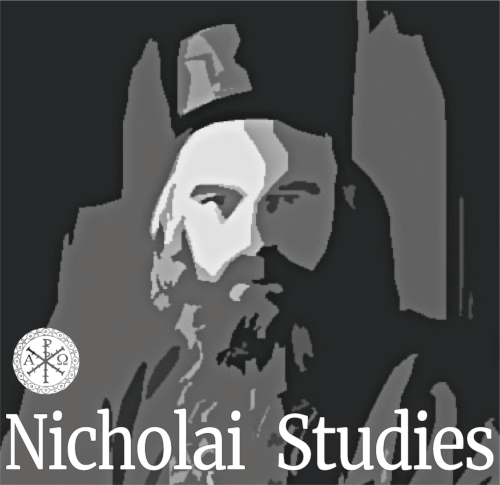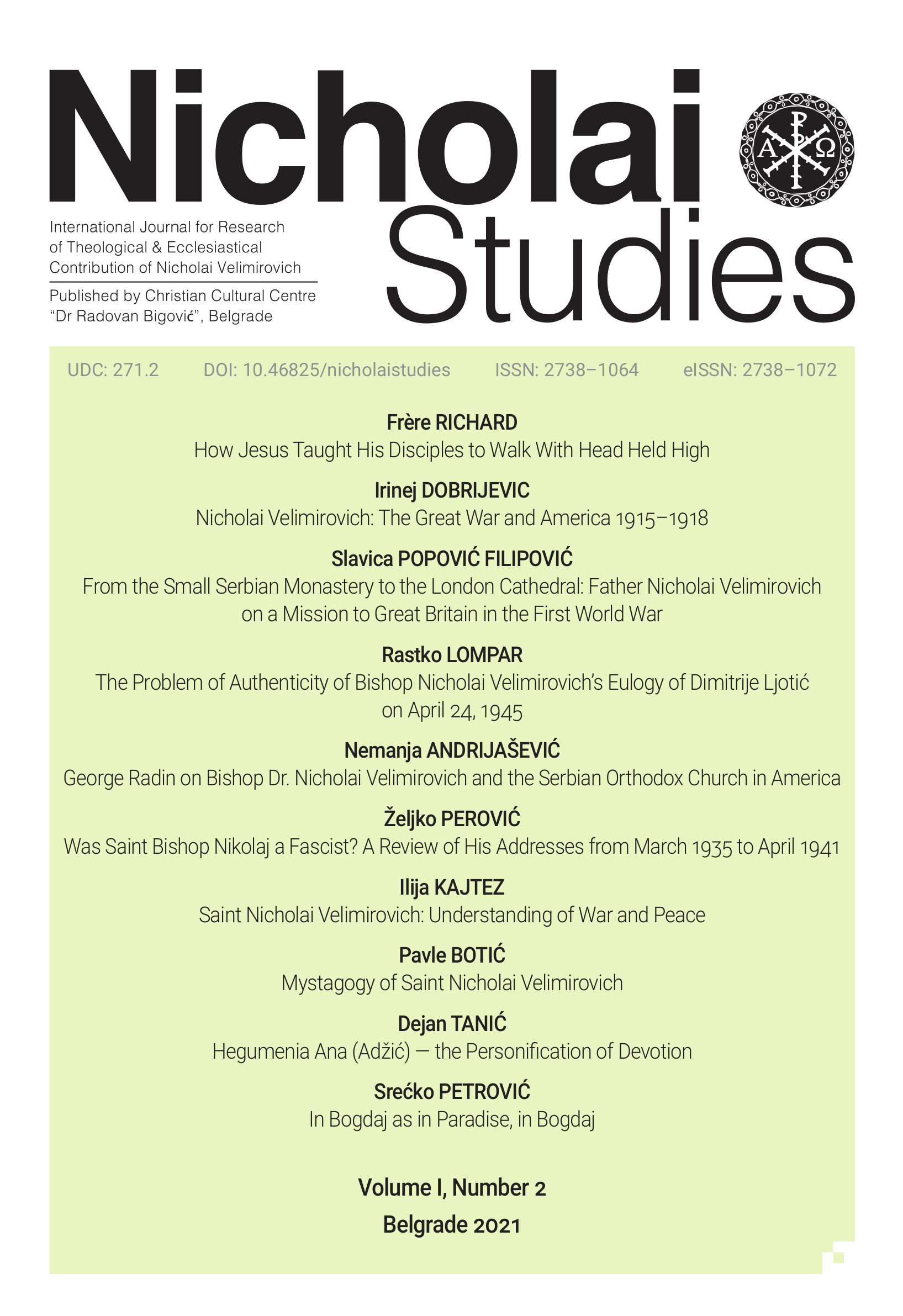The author addresses two important issues in this paper. First, what is a man, and what makes a man great and globally-historically important? In the light of this issue, he writes about Saint Nicholai. The author asserts that the attributes of a great man are intellectual depth, the width of knowledge, the ability to reach God and ontological depths of the world, vails of time and historical human destiny through his action, creation, and writing. All men who are great deal with the issue of man, meaning of life, and inevitability of death. Great men dreamt of immortality in their own glorious ways. What is left behind these giants are permanent unsurpassed deeds and the power of ideas accepted in all ages. The author aims to highlight what makes a man great for his people and for humanity in total, and to what extent does St. Nicholai meet these strict and demanding conditions and criteria to be viewed as a great man; is he great for his people or even outside of these limits. In the second, main issue and part of the paper, the author examines the understanding of war and peace in Bishop Nicholai’s work War and the Bible. The focal point of the examination is the phenomenon of war and peace, and especially the perception of the Bishop’s biblical study of war and peace which differentiates his approach from many other approaches to the phenomenon of war. The theological perspective of the phenomenon of war and peace always implies that good and evil clash in war and peace, and that this conflict is planetary and omnipresent; some individuals are on the side of justness, providence, light, and sanctity of life, while others side with the dark line of life which signifies the rule of evil in our world. According to the author, war is God’s will, just as peace among men. Conflict and peace between nations, as well as spiritual harmony and dissonance in human souls, depend primarily on faith in the Lord. If one is in God’s grace victory is secure. We ought to be reminded of the Christian understanding that the support of all people to one man is futile if he stands against God — on the other hand, he fears nothing if the will of God is on his side, even if all people are against him. In his book, War and the Bible, Bishop Nicholai claims that even in modern times the Lord of Armies decides the victor of every war, just as it was in ancient times. He claims that in modern war, just like in old times, the sinfulness of nations and national leaders and deviation from God’s Laws inevitably brings defeat; in today’s wars, just like in ancient conflicts, justfulness of nations and their leaders brings victory. Bishop Nicholai’s key conclusion is that all wars, both ancient and modern, can only be understood and explained in a biblical light. He devoted his entire very valuable and useful work to this idea, over a hundred years ago.
english
српски
Saint Nicholai Velimirovich: Understanding of War and Peace
Saint Nicholai Velimirovich: Understanding of War and Peace
Category: Review Article
pages: 435-474
Abstract
172.4 Николај Велимировић, свети
355.01 Николај Велимировић, свети
Chicago Notes and Bibliography
Kajtez, Ilija. “Saint Nicholai Velimirovich: Understanding of War and Peace.” Nicholai Studies I, no. 2 (July 2021): 435–474. https://doi.org/10.46825/nicholaistudies/ns.2021.1.2.435-474.
Chicago Author-Date
Kajtez, Ilija. 2021. “Saint Nicholai Velimirovich: Understanding of War and Peace.” Nicholai Studies I, no. 2 (July): 435–474. https://doi.org/10.46825/nicholaistudies/ns.2021.1.2.435-474.
APA7
Kajtez, I. Saint Nicholai Velimirovich: Understanding of War and Peace (2021). Nicholai Studies, I(2), 435–474. https://doi.org/10.46825/nicholaistudies/ns.2021.1.2.435-474.
MLA8
Kajtez, Ilija. “Saint Nicholai Velimirovich: Understanding of War and Peace.” Nicholai Studies, I, no. 2 (Jul. 2021), pp. 435–474. https://doi.org/10.46825/nicholaistudies/ns.2021.1.2.435-474.




